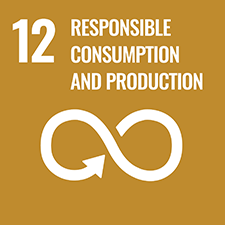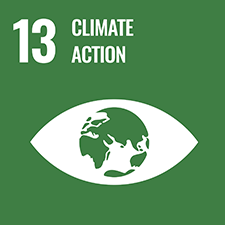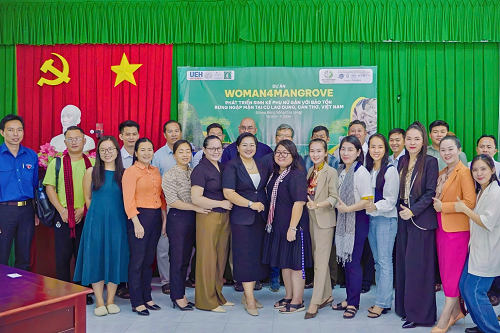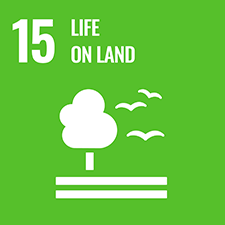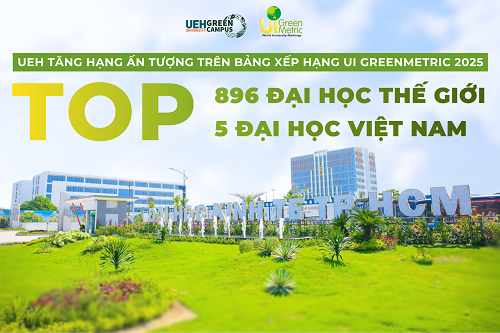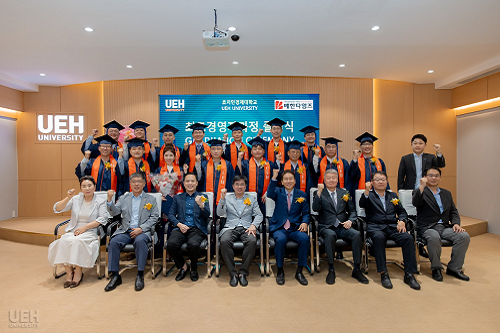
National scientific conference: To have a financial center, there must be an adaptive strategy
24 May, 2021
(DTTCO) - On the morning of April 27, 2021, the University of Economics Ho Chi Minh City (UEH) and the Saigon Newspaper to Liberate Financial Investment jointly organized the conference "Reshaping the global financial system and Vietnam's strategy". At the conference, many issues were discussed, such as global monetary, financial policy, international financial centers, financial crimes, posing the need for an adaptive strategy for Vietnam.

Ho Chi Minh City is eligible to become a regional and world financial center.
In the opening session of the conference, Dr. Can Van Luc, Member of the National Financial and Monetary Policy Advisory Council, said that the Vietnamese financial system is basically catching up with the main trends of digital transformation; digital currency; monetary - fiscal policy changes; restructuring, sanitizing and standardizing; green financial development, green banking; and financial - banking integration.
However, risks and challenges for the Vietnamese financial system are being posed, including financial risks; challenges from within the economy; institutional progress has contributed to improving the resilience of the economy and financial system, but still slower than required; crime risks in the field of finance - banking; challenges to develop green finance, green banking.
Accordingly, Vietnam needs to complete and effectively implement strategies and legal institutions in the field of finance - banking; legal corridor for new business models in the digital economy, finance - digital currency and green finance; capacity of management, supervision, safety and stability of the financial-monetary system... to be able to proactively seize opportunities and development prospects, and at the same time prevent risks towards sustainable development.
In the discussion on the topic of the global financial system and strategy for Vietnam, a multi-dimensional view of the financial center situation was given, including many comments on the issue of building an international financial center.

A view of the conference "Reshaping the global financial system and Vietnam's strategy" on the morning of April 27
Opening the discussion session, Dr. Nguyen Duc Kien, Head of the Prime Minister's Economic Advisory Group, shared that in 2020, Vietnam will achieve an average income of 2,779 USD/person; by 2025 will reach an average income of 4,700-5,000 USD/person and by 2030 will reach 7,500 USD/person, the demand for domestic capital development is enormous, including capital from the state budget and capital from organizations other economic institutions. In particular, the issuance of Government bonds is one of the important channels to ensure capital to meet the needs of socio-economic development.
But if it depends only on mobilizing from the domestic capital market, it is not only not enough, but it also puts great pressure on the domestic financial market, which is still in the period of needing to strengthen and overcome internal limitations. Therefore, the goal of issuing government bonds in the international capital market in the coming time is to proactively meet capital needs for development investment and government debt restructuring, with appropriate costs and risks with international market conditions and domestic debt repayment capacity, contributing to ensuring the Government's debt repayment ability, public debt safety and national financial security in the 2021-2030 period.
Analyzing the issue of building an international financial center in Ho Chi Minh City, this expert said it is necessary to provide a roadmap with 3 phases. Phase 1 (2021-2025) builds and affirms the role of the national financial center. Phase 2 (2026-2030) Ho Chi Minh City will be elevated to the role of a regional financial center and later will become an international financial center in about 10-15 years. Because to form a global financial center, it must be associated with two conditions: capital account liberalization and currency conversion - things that will take a very long time.
Regarding this content, Prof. Dr. Tran Ngoc Tho also asked the question if there is no ambition to be on par with the current major international financial centers, will the construction of an international financial center located in Ho Chi Minh City be successful? Typically, India's Gujarat international financial center has set a vision since 2016 to strive to be on par with the leading international financial institutions, after 5 years, it has ranked 10 international financial centers. This shows that the ambition to surpass parity from the beginning is the problem that needs to be questioned.
Prof. Dr. Su Dinh Thanh, UEH President, said that the topic of Ho Chi Minh City financial center is not new but was raised 20 years ago. But without ambition, there will be no determination, without determination, there will be no changes in institutions and policies as well as choosing the right model and steps. Why is the size of Ho Chi Minh City going down compared to the development requirements of the whole country? We are stuck with models and ideas in institutions. Therefore, there must be a new sandboxing mechanism, only then can we hope for the city's developing step to create momentum for regional linkage.
Dr. Truong Van Phuoc, a member of the Prime Minister's Economic Advisory Group, shared: There is a view that this financial center must build a tall building in Thu Thiem, but I think that if the ministries and branches disagree, there will be no financial center. Because this financial center is an institution of a capital market, a money market, agencies such as the Ministry of Finance and the State Bank will not be able to do it if they do not agree. So if the financial center is put in the perspective of serving the country and financial services itself, those institutions must be changed and sandbox is not only for HCMC but also for Vietnam.”
Dr. Le Dat Chi, Vice Dean of the UEH School of Finance, said that so far, the State Bank basically has a message that foreign exchange reserves are very high, which is a good picture. Facing the trend of European countries and the US increasing spending, Vietnam must take advantage of global trade to have foreign exchange reserves. At the same time, now it is natural to take advantage of this context to build financial centers to capture trends. One financial center will serve the whole economy to take off.
Sharing more, Mr. Thomas Hung Tran, UK fraud and financial crime prevention expert, said that developing the financial center and becoming a financial center has become the goal and strategy of emerging countries. This is the right economic development strategy. Because only when the financial center reaches a certain level of development, capital from business owners and investors can be effectively circulated to entities who have needs to use capital in the economy, creating favorable conditions for technology, gray matter and management experience transfer.
However, the strategy also appeals to financial criminals, who understand the capital needs of emerging markets, as well as the primitiveness of financial crime identification and defense measures of these markets. Currently, Vietnam is also the target of many transnational financial crime groups to transform illegal capital. Therefore, Vietnam needs to improve its ability to respond to financial crimes, helping the Vietnamese financial center to maintain its goal of being an attractive destination for business owners and genuine investors.




![[Research Contribution] Factors Affecting Gen Z's Intention To Buy Green Cosmetics Through The Intermediate Variable Of Consumers' Attitude](/images/upload/thumbnail/ueh-thumbnail-639018655243295179.png)

